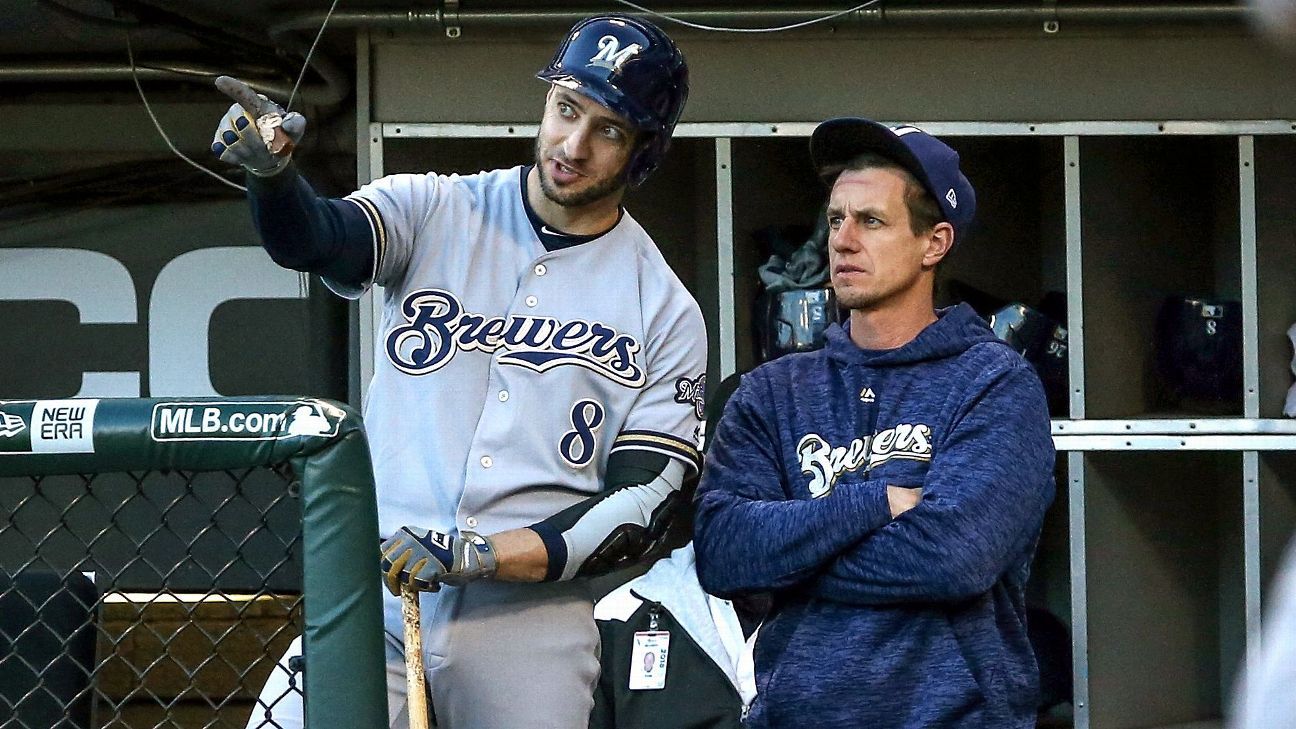One thing that will be unmistakable for fans in the National League when games in the 2020 season get played: Pitchers won’t be hitting, thanks to the adoption of the universal DH for this campaign. Whether it’s just a feature of Major League Baseball’s shortened 60-game season or a sign of things to come, we asked the NL’s managers what they think about playing American League-style ball this season, and heard back from 14 of them. We also wanted their thoughts on the interleague matchups against the opposite division from the Junior Circuit for a third of their schedule this season.
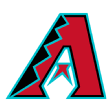 Torey Lovullo, Arizona Diamondbacks: I’ve really enjoyed the National League style of baseball over the past three years, but I have had a lot of experience inside of the American League and in the use of the DH. It’s just going to allow pitchers to run as long as they can, go as hard as they can, as long as they can, without taking score or at-bats into consideration. There’s definitely a strategy to how and when you pull a pitcher in the National League; now it’s going to be strictly based on performance and how we’re going to win this baseball game. It simplifies it from a pitching standpoint, but it also has a lot of excitement with another big bat inserted into the lineup — you can score some runs. It’s a more exciting brand of baseball when you’re pushing points across the board.
Torey Lovullo, Arizona Diamondbacks: I’ve really enjoyed the National League style of baseball over the past three years, but I have had a lot of experience inside of the American League and in the use of the DH. It’s just going to allow pitchers to run as long as they can, go as hard as they can, as long as they can, without taking score or at-bats into consideration. There’s definitely a strategy to how and when you pull a pitcher in the National League; now it’s going to be strictly based on performance and how we’re going to win this baseball game. It simplifies it from a pitching standpoint, but it also has a lot of excitement with another big bat inserted into the lineup — you can score some runs. It’s a more exciting brand of baseball when you’re pushing points across the board.
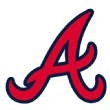 Brian Snitker, Atlanta Braves: I spent the majority of my management career with a DH in the minor leagues. And having one this year is a very smart decision, healthwise. Bobby Cox used to tell me, when he managed in the American League, I’d ask, ‘Skipper, how do you do that?’ And he goes, ‘Get a bag of balls and sit on it, watch the game.’
Brian Snitker, Atlanta Braves: I spent the majority of my management career with a DH in the minor leagues. And having one this year is a very smart decision, healthwise. Bobby Cox used to tell me, when he managed in the American League, I’d ask, ‘Skipper, how do you do that?’ And he goes, ‘Get a bag of balls and sit on it, watch the game.’
It’s a little more difficult than that, of course. There’s not going to be the pinch hitting, like there is a National League game. I think that is going to be the biggest thing. It’s still a challenge. I’ve noticed sometimes in playing interleague games on the road, where we have a DH, sometimes it’s like, man, things flow better with the National League game, and it’s still a tough thing to manage as far as your bullpen, and things like that I think, than in the American League. It’s not just a slam dunk that there’s nothing going on with that. It’s going to be different, and I don’t know that managing a major league baseball game is ever easy. I always used it to maybe, for one of your regular guys, just to get them off their feet a little bit and keep them in the lineup. Now, as guys are going to have to use the season to get in shape, it might be a good avenue for a guy to give him a day off so that they can still hit.
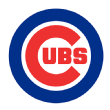 David Ross, Chicago Cubs: When I was a player, I definitely would have voted against the DH. … I love the strategy for a catcher calling a game from behind the plate. Since retirement, being a fan, you just enjoy it a little bit more when you see a guy up there having a competitive at-bat. Now that I sit in the manager’s seat, I get to try this out first and see how this goes — and let MLB and the players’ union sort the rest out.
David Ross, Chicago Cubs: When I was a player, I definitely would have voted against the DH. … I love the strategy for a catcher calling a game from behind the plate. Since retirement, being a fan, you just enjoy it a little bit more when you see a guy up there having a competitive at-bat. Now that I sit in the manager’s seat, I get to try this out first and see how this goes — and let MLB and the players’ union sort the rest out.
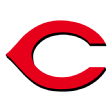 David Bell, Cincinnati Reds: I’ll miss the National League game. I enjoy it, but at the same time, we’ve decided as an industry, for a lot of great reasons, to move forward with the DH role, at least for this year. Now it just becomes a challenge of making the most of that and normalizing that for our team. I do think our team is set up well for that. I’m sure there’s other teams that feel the same way, but in our case, one of the great challenges going into this year was going to be getting all of our offensive players in the lineup, particularly in the outfield, where we have great depth. So, this will just make it easier to give more opportunities. For us, we believe it’s an advantage.
David Bell, Cincinnati Reds: I’ll miss the National League game. I enjoy it, but at the same time, we’ve decided as an industry, for a lot of great reasons, to move forward with the DH role, at least for this year. Now it just becomes a challenge of making the most of that and normalizing that for our team. I do think our team is set up well for that. I’m sure there’s other teams that feel the same way, but in our case, one of the great challenges going into this year was going to be getting all of our offensive players in the lineup, particularly in the outfield, where we have great depth. So, this will just make it easier to give more opportunities. For us, we believe it’s an advantage.
1:07
Reds manager David Bell explains what the universal DH rule means for his team this season, including how it benefits his offense.
 Bud Black, Colorado Rockies: I grew up in the American League as a player, and my first seven years as a coach were with the Angels in the American League. So I know the American League game. But when I went to the Giants as a player and I was 33 years old, I hadn’t picked up a bat in a long time, and it was a different game. I grew to love the four years I was with the Giants; just the strategy that managers and coaches have to work through. I’m a traditionalist at heart. I don’t know how many purists are out there in baseball. I think most people will prefer this. But there’s a part of me that thinks the pitching is getting so good, velocities, secondary stuff, pitchers are now having such a hard time contributing offensively, so this might be a good thing really in the long run. A lot of decisions in the National League game are made for you on when to take the pitcher out with his spot in the lineup coming up. So this will be a little different for us, but I think we’ve all managed in this type of DH game.
Bud Black, Colorado Rockies: I grew up in the American League as a player, and my first seven years as a coach were with the Angels in the American League. So I know the American League game. But when I went to the Giants as a player and I was 33 years old, I hadn’t picked up a bat in a long time, and it was a different game. I grew to love the four years I was with the Giants; just the strategy that managers and coaches have to work through. I’m a traditionalist at heart. I don’t know how many purists are out there in baseball. I think most people will prefer this. But there’s a part of me that thinks the pitching is getting so good, velocities, secondary stuff, pitchers are now having such a hard time contributing offensively, so this might be a good thing really in the long run. A lot of decisions in the National League game are made for you on when to take the pitcher out with his spot in the lineup coming up. So this will be a little different for us, but I think we’ve all managed in this type of DH game.
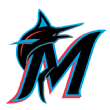 Don Mattingly, Miami Marlins: Obviously, it helps everyone, and it particularly helps us. We’ve struggled to score runs. That’s been a big issue the last couple of years, putting runs on the board. Our lineup is better; it’s gotten deeper. There are a few players, like Big Papi [David Ortiz], Harold Baines or Edgar Martinez, who you can sit in there every day and they’re going to bang. We’ll probably have a guy that ends up fitting that role most of the time, but we’ll be able to use it to give guys days off. That’s how I’ve always pictured it. I watched Tony La Russa how he did it with the A’s; he pretty much had Dave Parker, but he’d give Mac [Mark McGwire] a day to DH, he’d give Josie [Jose Canseco] a day to DH, he’d give Rickey [Henderson] a day. We can use it as a revolving door to be able to rest guys and to be able to keep our better lineup in there.
Don Mattingly, Miami Marlins: Obviously, it helps everyone, and it particularly helps us. We’ve struggled to score runs. That’s been a big issue the last couple of years, putting runs on the board. Our lineup is better; it’s gotten deeper. There are a few players, like Big Papi [David Ortiz], Harold Baines or Edgar Martinez, who you can sit in there every day and they’re going to bang. We’ll probably have a guy that ends up fitting that role most of the time, but we’ll be able to use it to give guys days off. That’s how I’ve always pictured it. I watched Tony La Russa how he did it with the A’s; he pretty much had Dave Parker, but he’d give Mac [Mark McGwire] a day to DH, he’d give Josie [Jose Canseco] a day to DH, he’d give Rickey [Henderson] a day. We can use it as a revolving door to be able to rest guys and to be able to keep our better lineup in there.
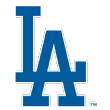 Dave Roberts, Los Angeles Dodgers: I would be disappointed. I think that in baseball there should be a place for both. I love the ability to keep an aging player in the game that can still hit. I understand the fans’ excitement to see a hitter, but I also love a strategy of double switching and knowing that you have to pinch hit for a pitcher and use your bench and things like that. I love that kind of strategy. For me, I’m going get the best of both worlds. But I think in this particular case, with the pitchers not really being able to be built up, putting them in jeopardy as far an oblique [injury] long swinging the bat, I think this year it’s very clear and it makes sense.
Dave Roberts, Los Angeles Dodgers: I would be disappointed. I think that in baseball there should be a place for both. I love the ability to keep an aging player in the game that can still hit. I understand the fans’ excitement to see a hitter, but I also love a strategy of double switching and knowing that you have to pinch hit for a pitcher and use your bench and things like that. I love that kind of strategy. For me, I’m going get the best of both worlds. But I think in this particular case, with the pitchers not really being able to be built up, putting them in jeopardy as far an oblique [injury] long swinging the bat, I think this year it’s very clear and it makes sense.
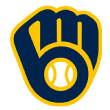 Craig Counsell, Milwaukee Brewers: I am not a fan of the designated hitter. I do think that in this season it’s appropriate, for player health and for pitcher health. For us, it’s going to involve Ryan Braun, and it’s also a way probably for us to keep Christian Yelich in the lineup. Off the top of my head, those are probably the two players that I see in that spot, among others. I do think it helps us with Christian in that he can avoid having to play the field a couple days, and that’s maybe some less days off, especially at the start, than we thought we may have had to give him. Because everybody’s going to need a little bit of time off at the start, just because we’re probably just not able to prepare the players the way we’d like to.
Craig Counsell, Milwaukee Brewers: I am not a fan of the designated hitter. I do think that in this season it’s appropriate, for player health and for pitcher health. For us, it’s going to involve Ryan Braun, and it’s also a way probably for us to keep Christian Yelich in the lineup. Off the top of my head, those are probably the two players that I see in that spot, among others. I do think it helps us with Christian in that he can avoid having to play the field a couple days, and that’s maybe some less days off, especially at the start, than we thought we may have had to give him. Because everybody’s going to need a little bit of time off at the start, just because we’re probably just not able to prepare the players the way we’d like to.
 Luis Rojas, New York Mets: First, it’s a very good thing. When it comes to players’ health, it’s a very good decision. Our pitchers, coming from home, I doubt that any one of them was swinging a bat … well, perhaps Jacob deGrom. I think it’s very good that they thought of the pitchers and implemented the universal DH. I am pro-National League rules. I grew up, from a very young age, in National League ballparks, watching my father managing in the majors, watching National League games. I was a fan of National League teams. I’m going to miss the pitchers’ strategy, but I totally support the DH, because our priority this season is to take care of the guys and to keep them healthy.
Luis Rojas, New York Mets: First, it’s a very good thing. When it comes to players’ health, it’s a very good decision. Our pitchers, coming from home, I doubt that any one of them was swinging a bat … well, perhaps Jacob deGrom. I think it’s very good that they thought of the pitchers and implemented the universal DH. I am pro-National League rules. I grew up, from a very young age, in National League ballparks, watching my father managing in the majors, watching National League games. I was a fan of National League teams. I’m going to miss the pitchers’ strategy, but I totally support the DH, because our priority this season is to take care of the guys and to keep them healthy.
 Joe Girardi, Philadelphia Phillies: I like the idea because I don’t think that three weeks is enough time to get pitchers healthy to hit and feel good about it and get them the at-bats they need. I feel good about it. I think our team is built pretty good for a DH, in that we have Jay Bruce that can DH from the left side. Sometimes you might play him in left and DH [Andrew] McCutchen. Some days you might play somebody else in right and DH Bryce Harper or DH J.T. [Realmuto] to get him off his feet from behind home plate. I think we’re in a good position to have a DH. And I actually like it, because I would have been worried about pitchers trying to (A) feel good about their pitching in a short period of time, and then (B) for us to feel good that they’re not going to get hurt while hitting. Because if you think about it, if a player goes on the DL for two weeks, that’s substantial in an abbreviated season.
Joe Girardi, Philadelphia Phillies: I like the idea because I don’t think that three weeks is enough time to get pitchers healthy to hit and feel good about it and get them the at-bats they need. I feel good about it. I think our team is built pretty good for a DH, in that we have Jay Bruce that can DH from the left side. Sometimes you might play him in left and DH [Andrew] McCutchen. Some days you might play somebody else in right and DH Bryce Harper or DH J.T. [Realmuto] to get him off his feet from behind home plate. I think we’re in a good position to have a DH. And I actually like it, because I would have been worried about pitchers trying to (A) feel good about their pitching in a short period of time, and then (B) for us to feel good that they’re not going to get hurt while hitting. Because if you think about it, if a player goes on the DL for two weeks, that’s substantial in an abbreviated season.
I actually like the different strategies in the game, and I enjoyed managing in both leagues. I only managed one year with the Marlins as a National League manager, but I loved it. But I also loved managing having a DH, because during this time, when pitchers aren’t going to be built up as they would be coming out of a normal spring training, not having to worry about if you’re going to take a pitcher out the third inning or how you’re going to get through all the innings because a big spot is coming up the game or maybe there’s runners on second and third with two outs, that sort of thing. It’s probably a blessing because there’s going to be enough on our plates.
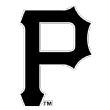 Derek Shelton, Pittsburgh Pirates: With the exception of interleague play, I have never been in a situation where we’ve had to work with the pitcher hitting, and having never managed in the major leagues, never had to manage with that. The one thing that I’m very aware of from being a hitting coach in the American League is that being a great DH is a difficult thing to do. The guys that have done it very well throughout their careers, whether it’s David Ortiz or Travis Hafner or Nelson Cruz, they have to be very aware of what happens between at-bats. Having spent time around Hafner and Nelly, whom I believe are two of the better ones, and being with Nelly last year, it’s a challenging thing to do.
Derek Shelton, Pittsburgh Pirates: With the exception of interleague play, I have never been in a situation where we’ve had to work with the pitcher hitting, and having never managed in the major leagues, never had to manage with that. The one thing that I’m very aware of from being a hitting coach in the American League is that being a great DH is a difficult thing to do. The guys that have done it very well throughout their careers, whether it’s David Ortiz or Travis Hafner or Nelson Cruz, they have to be very aware of what happens between at-bats. Having spent time around Hafner and Nelly, whom I believe are two of the better ones, and being with Nelly last year, it’s a challenging thing to do.
We have to make sure that we’re not putting our guys in a position where we’re asking them to do something because they’ve never done it. And we have to be very aware that it is challenging and it’s not just going to be something where you’re gonna say hey, Player X needs to go DH and they’re going to be able to handle it mentally. For National League players, that’s why we won’t run the same guy out every day. Because I think it’s something you learn to do and you have to learn to be successful at it. I’ve been around guys that have been very successful of it and they all go about it differently, but they all took time to learn how to do it.
 Mike Shildt, St. Louis Cardinals: I’m going to accept it, agree with it or don’t agree with it. It’s the rule, and we will figure out the best way we can compete with it. The bigger thing about is that it’s just different. You have to make different decisions. And Tony La Russa always said this, you need to be able to be ready to manage from the first pitch so the decisions that you make will give the team the best chance to win. That’s my responsibility. And our staff and myself will be prepared, ready to make those decisions, and ready to make the best ones we can we can make.
Mike Shildt, St. Louis Cardinals: I’m going to accept it, agree with it or don’t agree with it. It’s the rule, and we will figure out the best way we can compete with it. The bigger thing about is that it’s just different. You have to make different decisions. And Tony La Russa always said this, you need to be able to be ready to manage from the first pitch so the decisions that you make will give the team the best chance to win. That’s my responsibility. And our staff and myself will be prepared, ready to make those decisions, and ready to make the best ones we can we can make.
 Jayce Tingler, San Diego Padres: I actually like the DH, specifically and especially for this year. We’ve got two pitchers in our starting rotation who are in good health, Garrett Richards and Dinelson Lamet, who have come off Tommy John for the last year, plus worked rehab last year and got to throw down the stretch last year for the last month or two. I’ve been a little concerned on them starting up, then stopping and now having to start up again. For the Tommy John guys and everything they have gone through, deep down in the back of my mind, if they were hitting, I would be worried about what happens if they popped an oblique, a hamstring. An injured list stint of six to eight weeks, it’s probably your season.
Jayce Tingler, San Diego Padres: I actually like the DH, specifically and especially for this year. We’ve got two pitchers in our starting rotation who are in good health, Garrett Richards and Dinelson Lamet, who have come off Tommy John for the last year, plus worked rehab last year and got to throw down the stretch last year for the last month or two. I’ve been a little concerned on them starting up, then stopping and now having to start up again. For the Tommy John guys and everything they have gone through, deep down in the back of my mind, if they were hitting, I would be worried about what happens if they popped an oblique, a hamstring. An injured list stint of six to eight weeks, it’s probably your season.
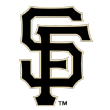 Gabe Kapler, San Francisco Giants: I think the DH will give managers the ability to be creative and keep their clubs safer by getting players off their feet for a day. I know especially for clubs who have players with injury issues, it’ll be nice to have that slot available.
Gabe Kapler, San Francisco Giants: I think the DH will give managers the ability to be creative and keep their clubs safer by getting players off their feet for a day. I know especially for clubs who have players with injury issues, it’ll be nice to have that slot available.
What about the impact of this year’s interleague schedule on your team?
Snitker: That’s a lot of good teams! I was talking to one of our guys the other day, and I was like, OK, right out the bat, we’re going to get Jacob deGrom. You know, like, good luck! Then you add in the AL East with all these really good teams that they have, it’s going to be rough. But you know what, it may be a cliché, but you do take it a day and a game at a time. You don’t look ahead; don’t look behind. If you look ahead, you’ll drive yourself crazy. I can’t do that.
Girardi: The fact that we’re only on the East Coast, I think will physically be easier on players. You could say that it’s only a 60-game schedule, but think about players, who usually require about four weeks of games to be in a shape to play every day — they’re not going to get that. Then you start talking about if you were changing time zones, and that would be somewhat difficult. So, I actually like it. I think it’s a very good idea because I think you could bus to a lot of areas or train [to] a lot of areas where you’re not going through airports. It’s safer and I think it’s the smart thing to do.
The AL East can be really tough, as I experienced for many years. We have a really tough division to begin with and we get that on top of it, so there’s gonna be a lot of drama and there’s gonna be a lot of fighting for a few spots.
Mattingly: The AL East is a tough division that we’re going to have to deal with. We play the Rays every year, so that makes no real difference for us; they have a really good club and [Kevin] Cash does a tremendous job over there. We played the American League East a couple years ago, had to play Boston home and away, got to play the Yankees — that’s just the way it is. We have a pitching staff that we know is young but talented. We’re going to feel comfortable with anybody we throw out there on day-to-day basis. I don’t feel like there are going to be many games that we throw starter out there that doesn’t shut things down a bit and keeps us in the game.
Counsell: From our perspective, we’ve got six games against the Twins, who are one of the best teams in the American League for sure. And 40 games will be played in our division. To me, it highlights probably that the games in your division are even more important; they take on so much value. Those games against our rivals, competing for the division, they take up a bigger percentage of the schedule so all of them are going to be really important games.
I think this was the year to expand the playoffs. I don’t think that in a regular 162-game season the playoffs should be expanded, because you don’t want teams in there that didn’t really deserve to get in there. This year, you want the playoffs expanded because you don’t know what’s going to happen in a 60-game season.
Black: It’s going to be different. Part of the beauty of a long season is playing against other teams and traveling to other parts of our country, and have fans in the East Coast cities being able to watch players like Nolan Arenado, Trevor Story, Charlie Blackmon, those types of players. It’s always been fun for me to travel our country and show our team. I’ll miss that. I think the players will miss it.
Lovullo: It’s easier for us to prepare knowing that we’re not going to spend a lot of time playing other teams outside of the Western Division. We’re going to see each other a lot. And that’s typical of August, September baseball where you’re mostly inside of your division.
Shelton: Having been in the AL Central the last two years [as a coach with the Twins], at least I have a little knowledge of that group [of teams]. The other thing we have to be aware of is that teams get hot. You’ll see teams that finish in fourth place, but for two weeks or three weeks they’re the best team in baseball. I think the fact that we are playing each other so much, and that we have so much information, it’s going to make it more challenging. I think you’re definitely going to see more parity.
